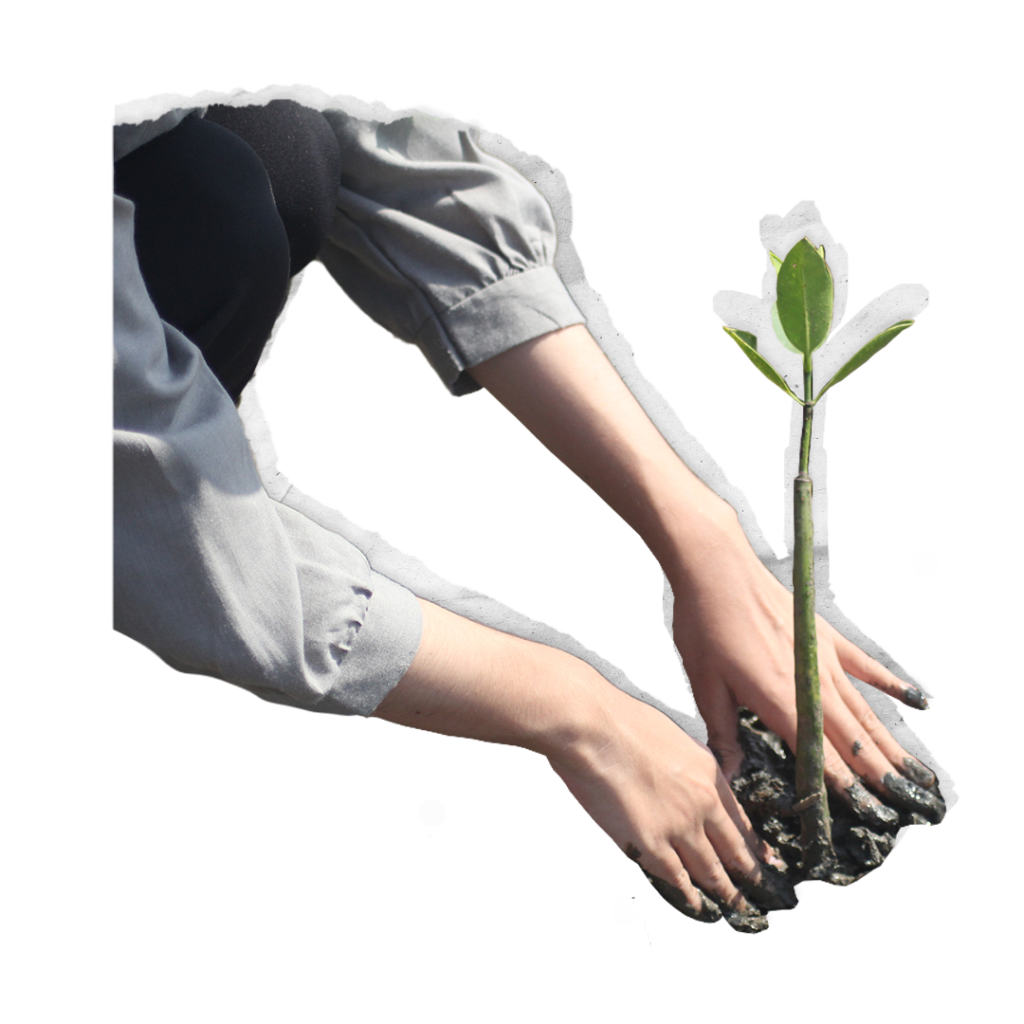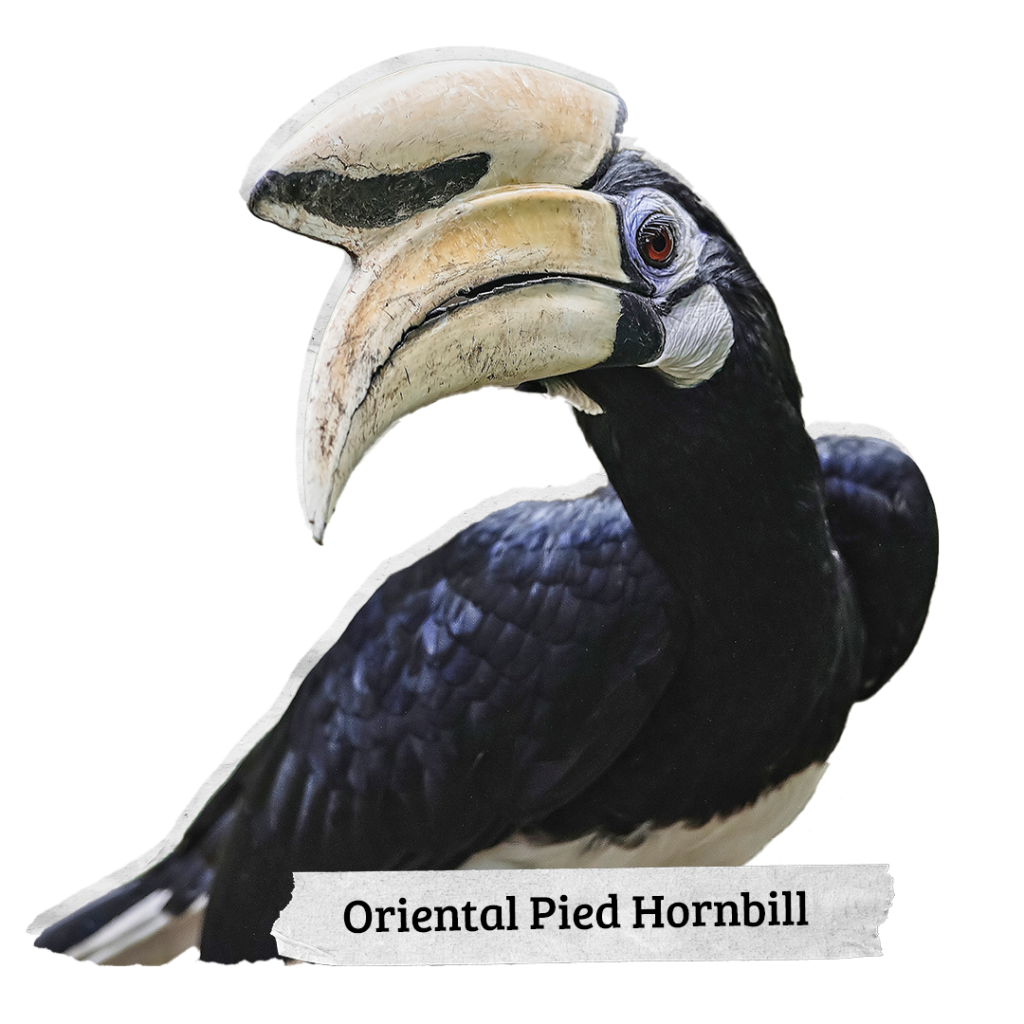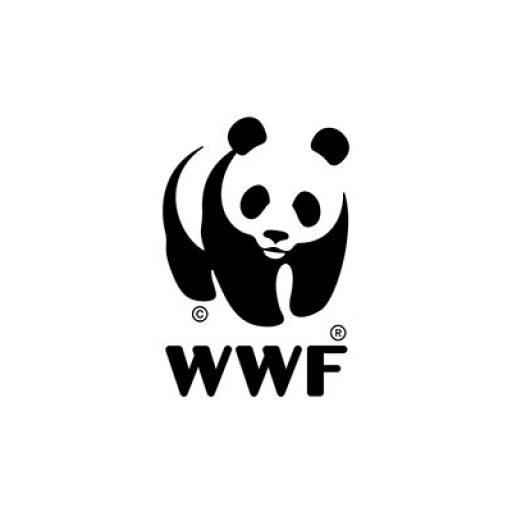Importance of
Sungei Buloh
Sungei Buloh Wetland Reserve is an ecological gem on a tiny green island with rich biodiversity.
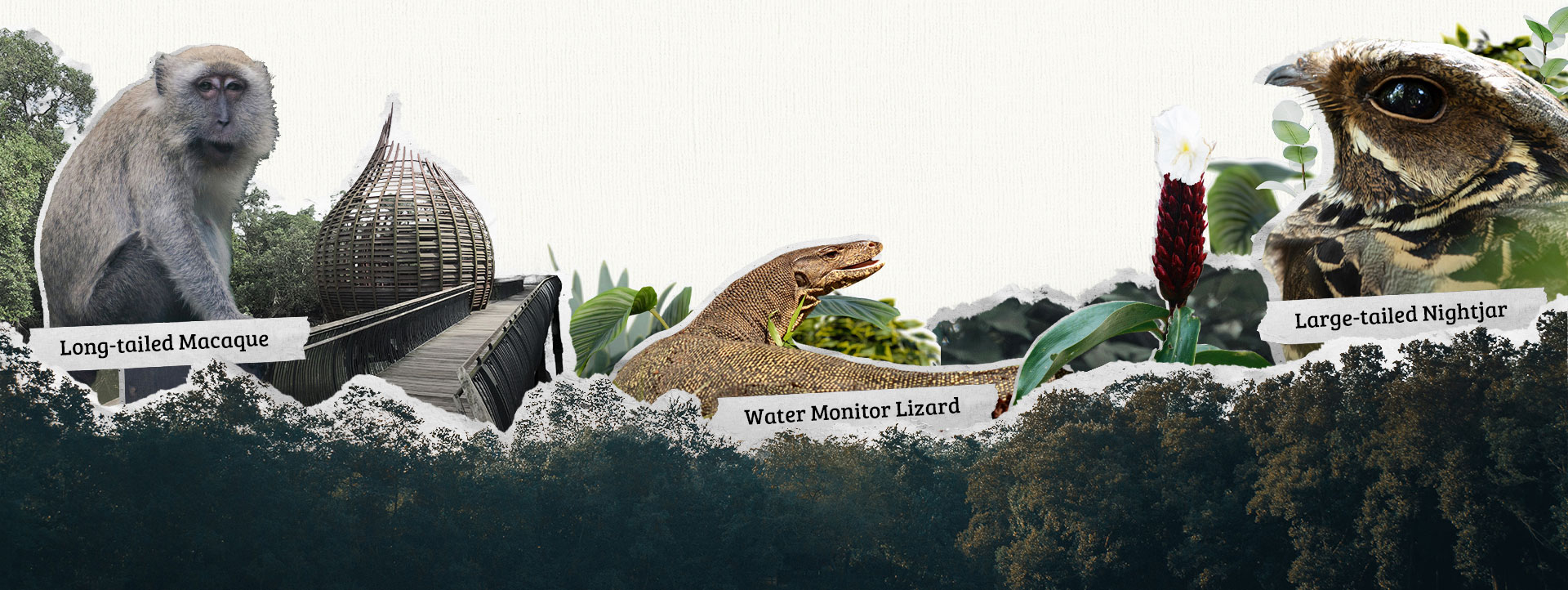
Mangrove Forest
Mangroves are protectors of Singapore’s coastline. Despite occupying a small portion of the total land area, their role is substantial. From absorbing large amounts of carbon dioxide to filtering out harmful pollutants in the water, these incredible ecosystems do it all.
Click on the buttons below to learn more!
Back
Natural Seawalls & Water Filters
Singapore’s mangroves serve as natural barriers against storm surges, absorbing 70% to 90% of incoming wave energy. This shielding effect helps protect shorelines from flooding, storm damages, and coastal erosion. In the face of rising sea levels, mangrove forests aid in sediment accumulation, elevating land and assisting the coastline in adapting to higher waters. Additionally, they act as natural water filters, effectively removing harmful pollutants such as heavy metals, toxic substances, and sewage matter.
Back
Blue Carbon Sinks
Singapore’s mangroves currently store more than 1.4 million tonnes of carbon dioxide and continue to sequester more carbon every year. Mangrove forests have the capacity to store up to four times more carbon dioxide than tropical forests. In urbanized Singapore, it is crucial to preserve plants capable of storing greenhouse gases and mitigating the effects of climate change.
Back
Healing Medicines & Natural Resources
Mangrove plants have been employed in traditional folk medicine to treat various ailments, including asthma, rheumatism, and smallpox. Additionally, many communities utilize mangrove charcoal for activities like barbecuing and cooking local favorites such as satay. Globally, these resources are harvested sustainably, ensuring mutual benefits for both the mangroves and the communities that rely on them.
Back
Juvenile Fish Nurseries
Mangrove trees have dense above-ground root systems, providing a safe nursery for juvenile fish to shelter from predators in the open ocean. These structures not only offers physical shelter but also serves as an ideal habitat for small fish and invertebrates, providing them with sufficient food resources, such as microorganisms.
Local Wildlife
Sungei Buloh Wetland Reserve is home to over 500 species of tropical flora and fauna. The biodiversity within the reserve showcases the interconnected relationships between various species, contributing significantly to the overall health of the local ecosystems.
Click on the buttons below to learn more!
Back
Resident & Migratory Birds
Both resident and migratory birds use these mudflats and mangroves as feeding and roosting sites, playing a crucial role in environmental balance by aiding in pollination, seed dispersal, and insect control. Our tiny island is the only country where the population of the Straw-headed Bulbul (Pycnonotus zeylanicus), a critically endangered species, is increasing. Singapore also lies along the East Asian-Australasian Flyway, one of the world’s great migratory bird routes, acting as a safe pitstop for all birds along their journey.
Back
Insects, Mammals & Invertebrates
Our wetlands are home to numerous vulnerable and globally critically endangered species, such as the Mangrove Horseshoe Crab (Carcinoscorpius rotundicauda), the King Cobra (Ophiophagus hannah), a rare Mud Lobster (Thalassina gracilis), Singapore’s last wildcat species—the Leopard Cat (Prionailurus bengalensis) and various rare dragonfly species. It is exceedingly important for us to protect the remaining habitats of these species to maintain the ecological balance in these wetlands.
Mudflats, grasslands, and ponds
Mudflats and grasslands serve as vital ‘fast food’ stops for shorebirds and other migratory birds. These habitats are rich in invertebrates such as worms and crustaceans, offering nutrient-rich food sources for migratory birds that travel thousands of miles. The grassy areas and soft substrate not only provide essential nourishment but also allow birds to conserve energy and find refuge during their migrations.
Regionally Connected
Due to their coastal nature, mangroves in the region are also interconnected. Mangrove propagules (their ‘seeds’) are dispersed by water, which means there is some genetic flow between Singapore mangroves and their counterparts in the Malay Peninsula and around the South China Sea.
Collective community effort to preserve our wetlands!
WWF-Singapore has engaged with multiple important stakeholders for the conservation of wetland habitats. Last year, we signed a Memorandum of Understanding (MoU) with WWF-Hong Kong, Singapore’s National Parks Board, and Hong Kong’s Agriculture, Fisheries, and Conservation Department. This MoU establishes Sungei Buloh Wetland Reserve (managed by National Parks Board) and Mai Po Inner Deep Bay (managed by WWF-Hong Kong) as Sister Sites under the East Asian-Australasian Flyway Partnership (EAAFP).
The MoU outlines several areas of collaboration, including raising public awareness on wetlands and migratory species through education and outreach activities, field research, and knowledge sharing between the Sister Sites. These efforts help gauge the health of ecosystems and contribute to the restoration of their inhabitants.
Be Part of our Community Today!
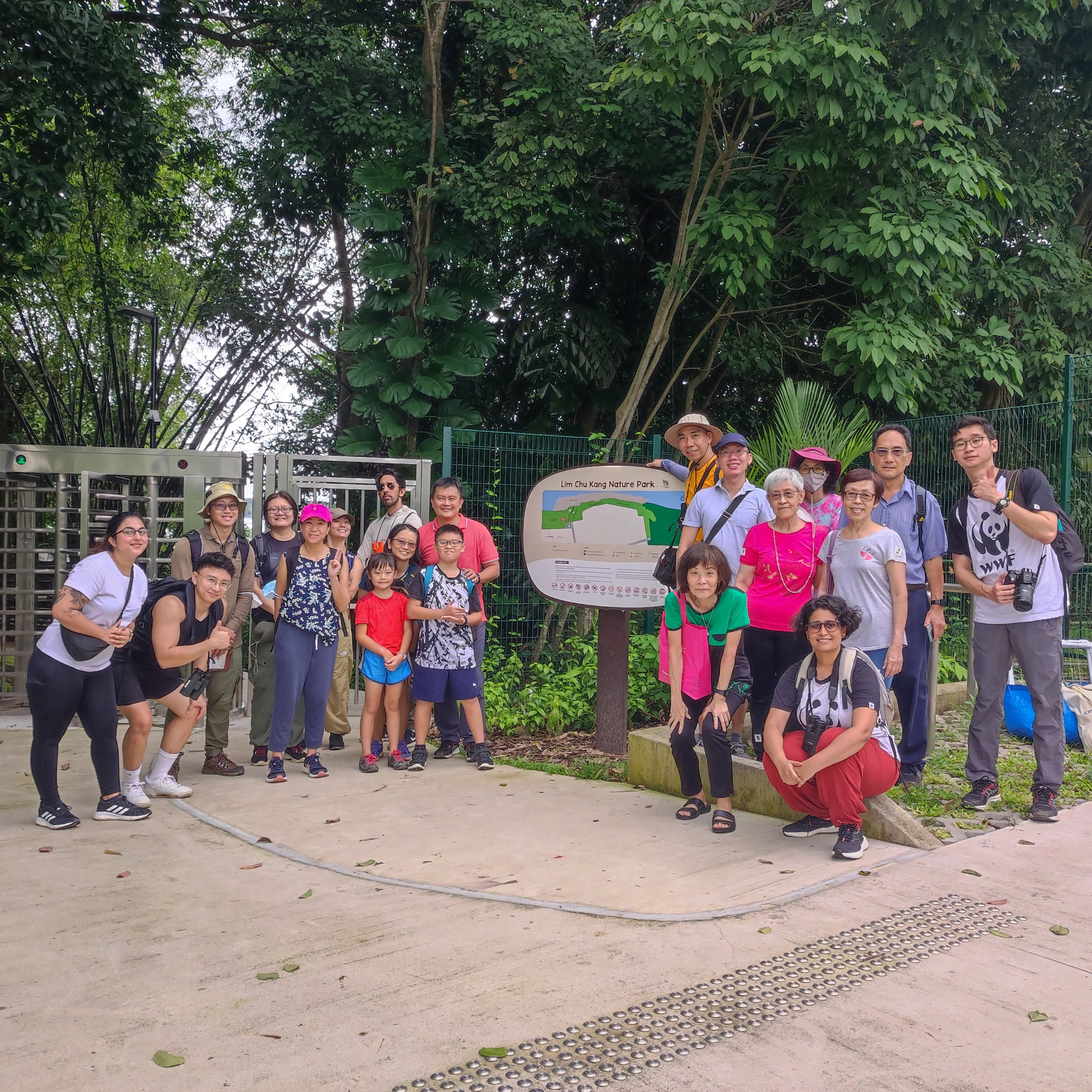
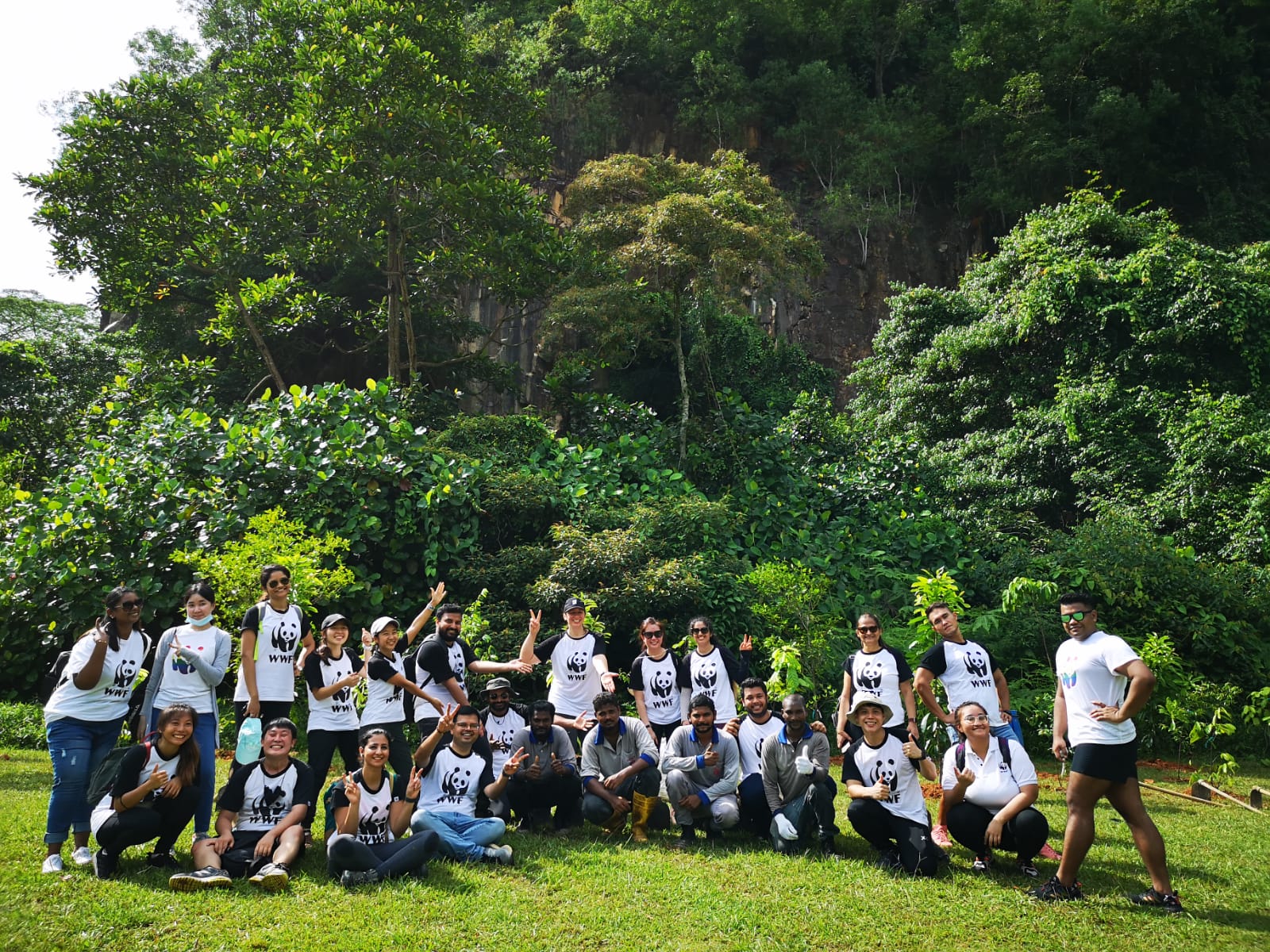
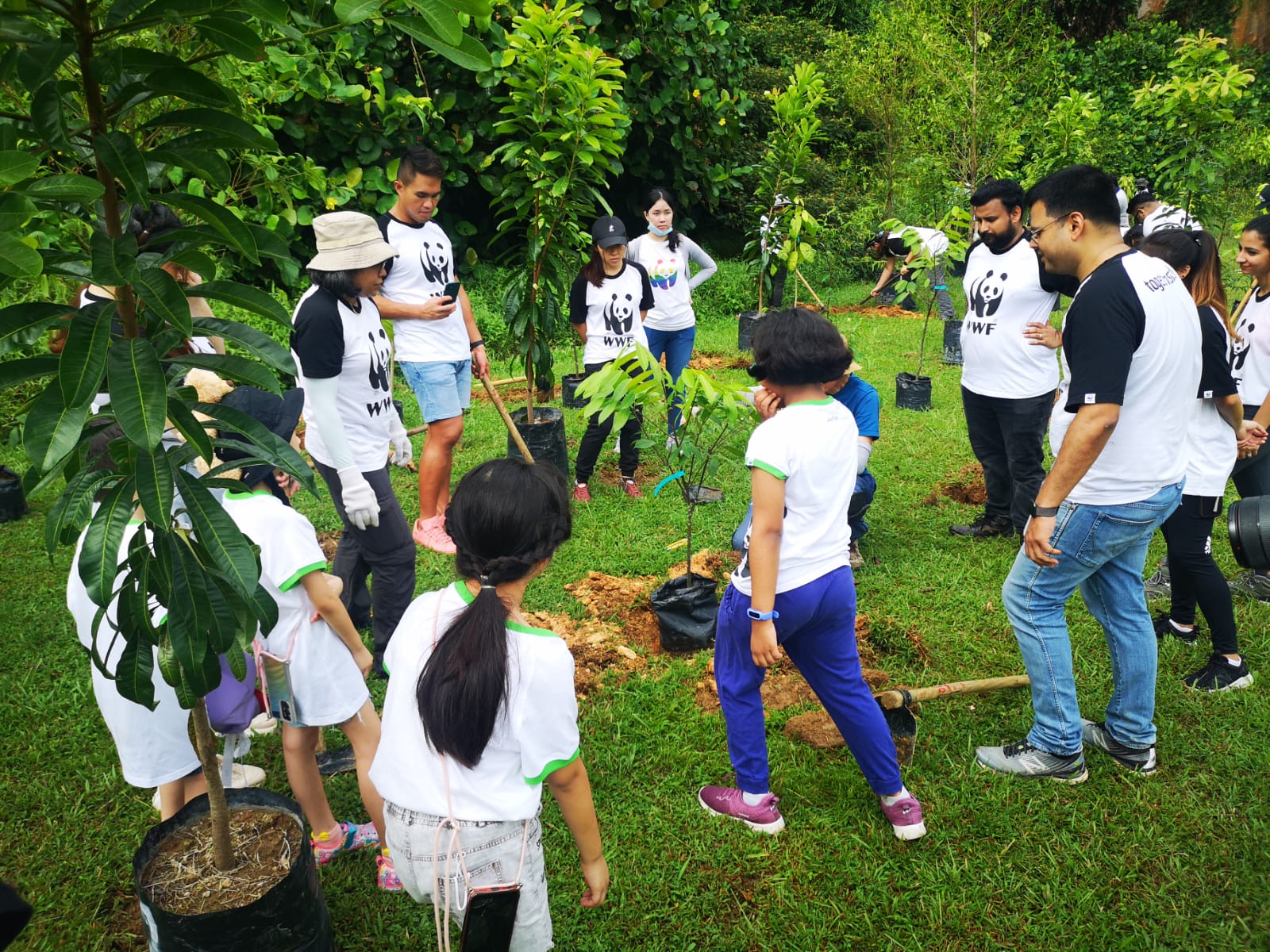
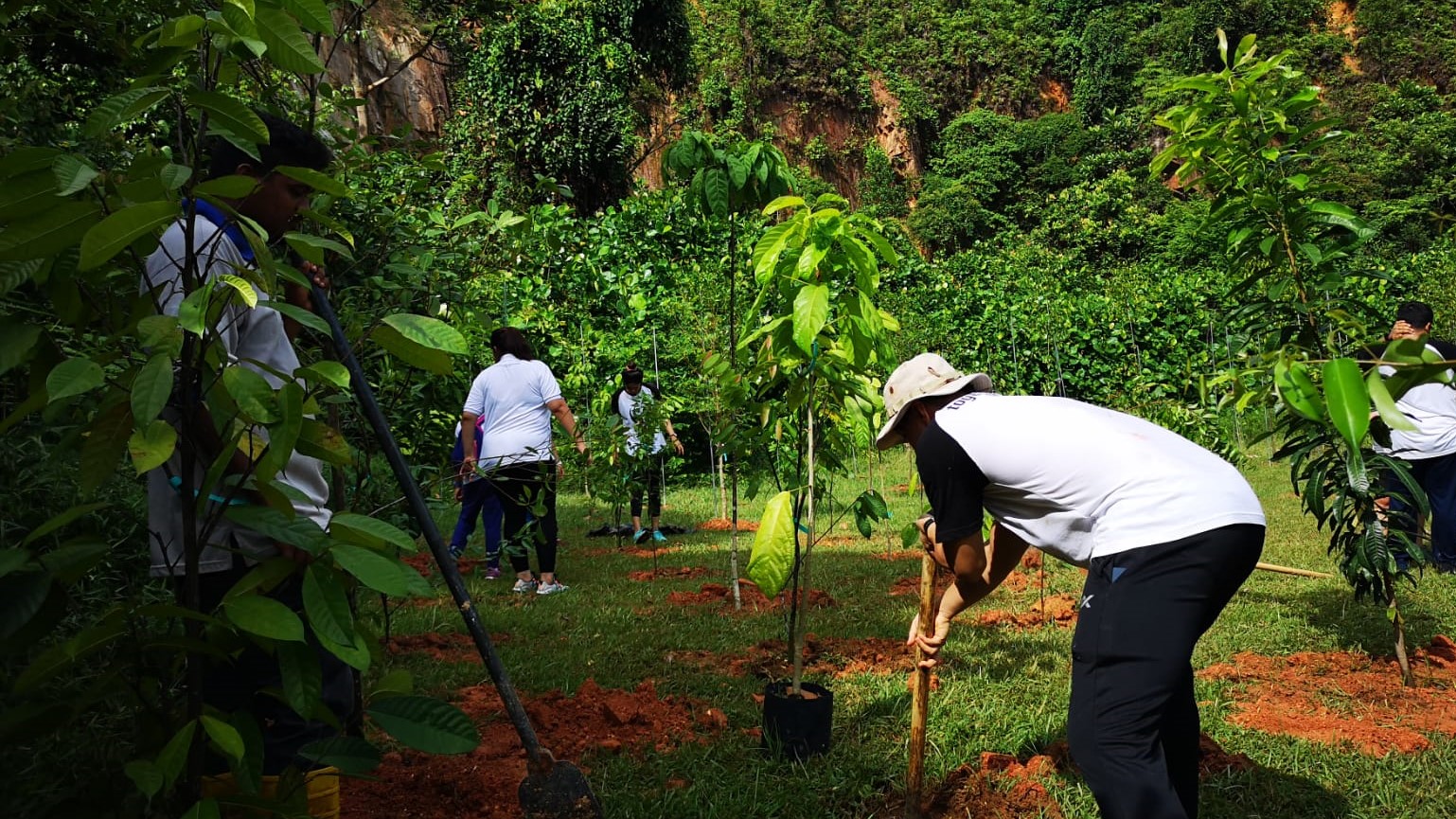
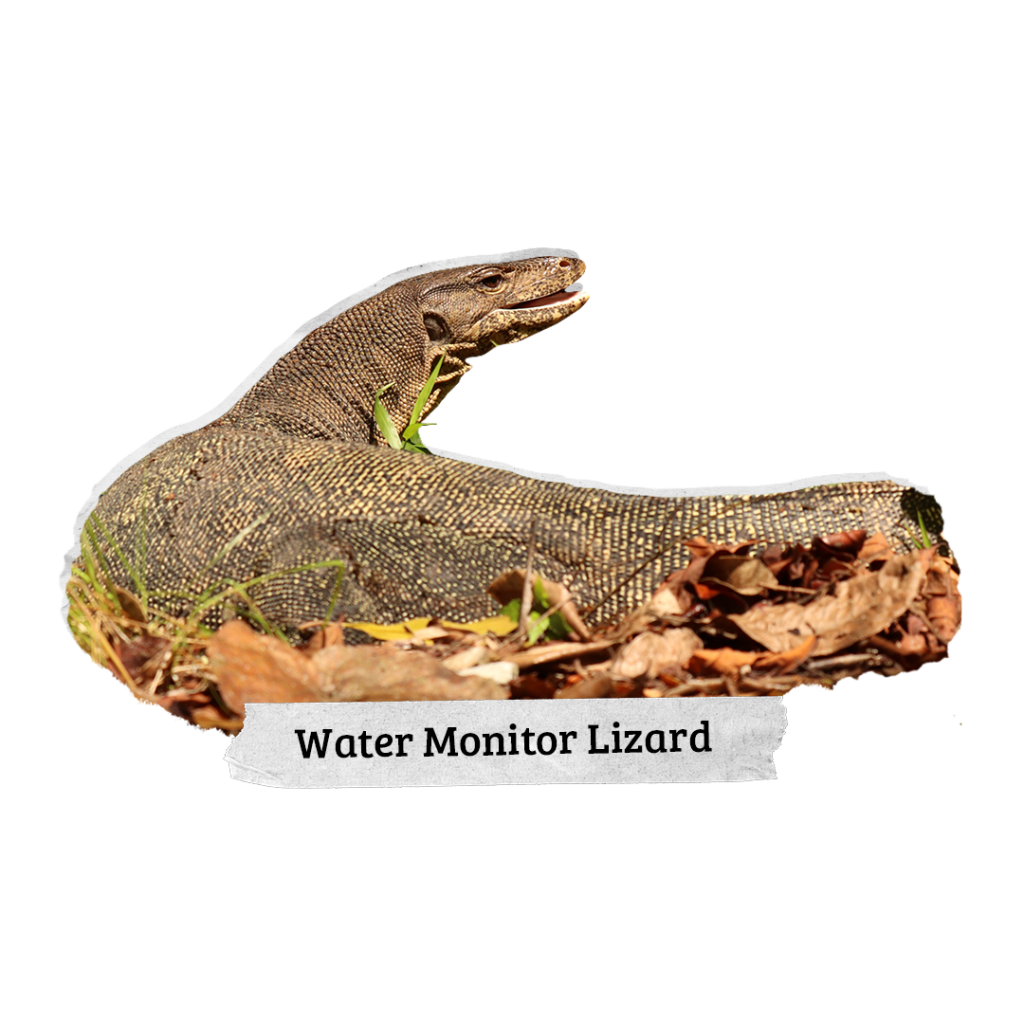
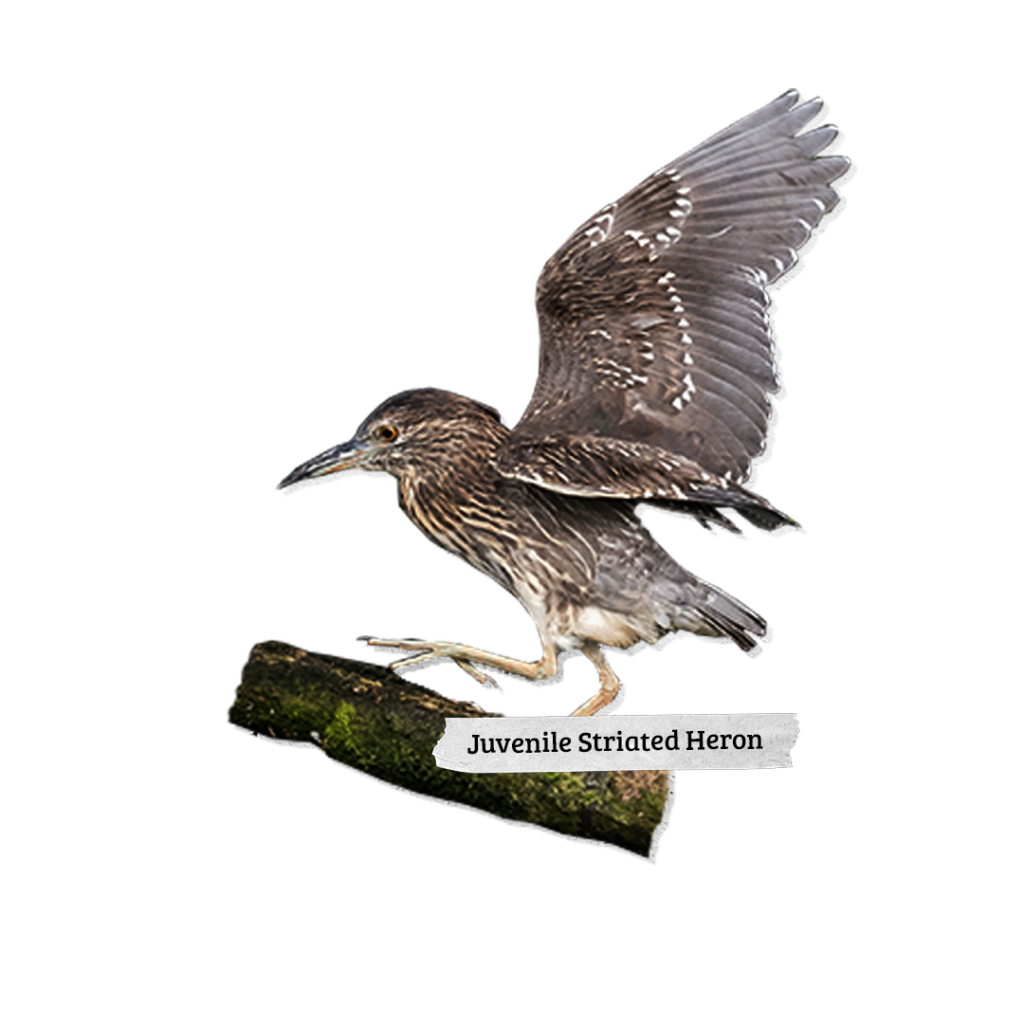
Protect our Local Mangroves Today
Join us in our efforts to save our mangroves and other critical habitats! These ecosystems protect us against rising sea levels and erosion, mitigate climate change, provide habitats for diverse wildlife, and are crucial for commercial fisheries and fishermen in the region.
Act now to conserve our local treasures and make a lasting impact that matters!
Join us to enjoy these benefits:
Benefits

100% Towards Local Conservation Efforts

250% Tax deduction

Member Exclusive Trips to Sungei Buloh

Member exclusive benefits
